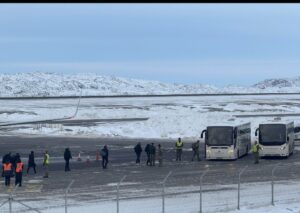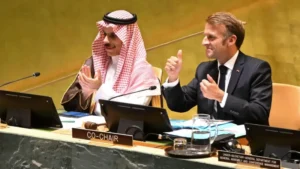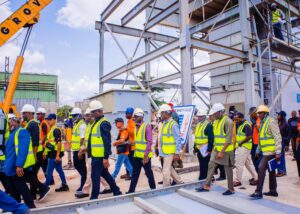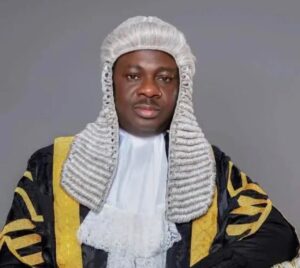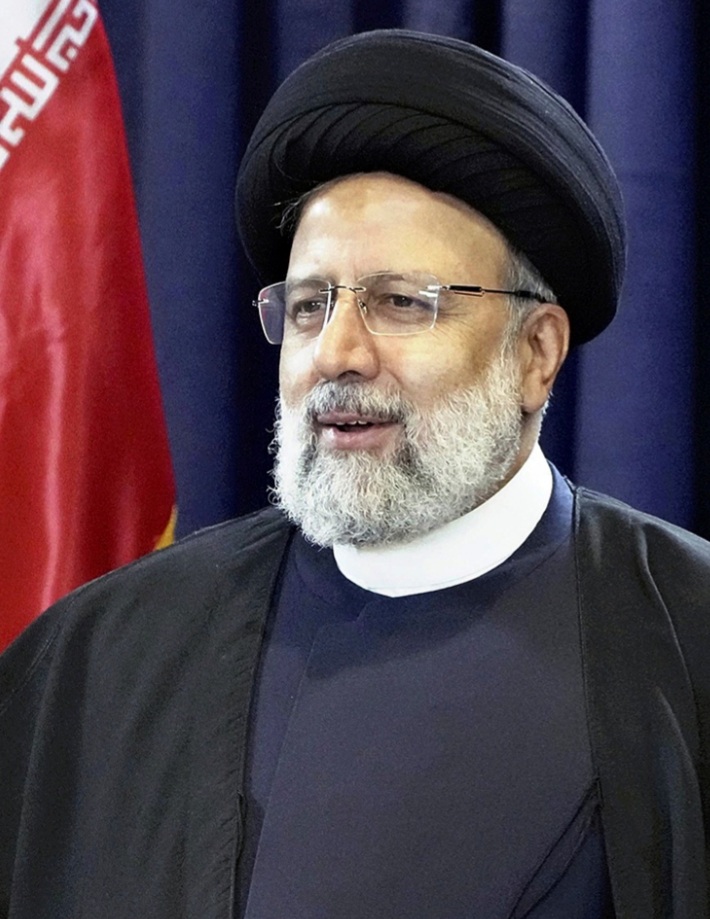
Ebrahim Raisi (late)
Agency report
Iran’s President Ebrahim Raisi has died in a helicopter crash at age 63, the government has confirmed. Foreign Minister Hossein Amir-Abdollahian was also among those killed, along with seven others.
[the_ad id=”16914″]
His death comes at a fraught moment in the Middle East, with war raging in Gaza.
The helicopter crashed weeks after Iran launched a drone-and-missile attack on Israel in response to a deadly strike on its diplomatic compound in Damascus.
Hardliner Raisi became president in a historically uncompetitive election in 2021. Previously the chief justice, he has overseen a period of intensified repression of dissent in a nation convulsed by youth-led protests against clerical rule.
Raisi was the second-most powerful person in the Islamic Republic’s political structure after Supreme Leader Ayatollah Ali Khamenei. The Iranian Constitution mandates that, in the case of the death of the president, the first vice president shall assume with the approval of the Supreme Leader.
[the_ad id=”16918″]
Global leaders react to death of Iran’s president
Leaders across the Middle East and beyond are expressing their condolences after Iranian President Ebrahim Raisi and eight others were killed in a helicopter crash on Sunday.
Those killed also include Iranian Foreign Minister Hossein Amir-Abdollahian.
India’s Prime Minister Narendra Modi wrote on X: “Deeply saddened and shocked by the tragic demise of Dr. Seyed Ebrahim Raisi, President of the Islamic Republic of Iran. His contribution to strengthening India-Iran bilateral relationship will always be remembered. My heartfelt condolences to his family and the people of Iran. India stands with Iran in this time of sorrow.”
Iraq’s Prime Minister Mohammed Shia’ Al Sudani expressed “sincere condolences and sympathy” to Iran’s Supreme Leader Ayatollah Ali Khamenei Ayatollah Ali Khamenei and his government in a post on X. “We express our solidarity with the brotherly Iranian people and our brotherly officials in the Islamic Republic in this painful tragedy.”
[the_ad id=”16917″]
Pakistan’s Prime Minister Shehbaz Sharif said “Pakistan will observe a day of mourning and the flag will fly at half mast as a mark of respect for President Raisi and his companions and in solidarity with Brotherly Iran.”
Venezuelan President Nicolas Maduro said he is “shocked by the terrible news of the sensitive physical loss of the President of the Islamic Republic of Iran.” Maduro said: “From Bolivarian lands, we express our deepest condolences to Supreme Leader Ayatollah Ali Khamenei and wish for divine consolation for such a sensitive loss.”
United Arab Emirates President Mohammed bin Zayed Al Nahyan said “The UAE stands in solidarity with Iran at this difficult time,” extending heartfelt sympathies to the families of those killed in the accident.
Iran president’s death could not have come at a “more unstable time” for region, CNN’s Amanpour says
[the_ad id=”16920″]
The death of President Ebrahim Raisi couldn’t have come at a “more unstable time” for both Iran and the region, according to CNN’s Chief International Anchor Christiane Amanpour.
International outlook
Raisi’s death comes as Israel’s war against Hamas continues into its eighth month, fueling a spiraling humanitarian catastrophe and sending regional tensions soaring.
“The perennial shadow war between Israel and Iran that had been going on broke into the open over the last several weeks,” Amanpour said.
“You can imagine for the United States, for the west, one of the most important issues is the Iran nuclear issue,” she added.
Raisi took the presidency as negotiations with the US over how to revive the 2015 nuclear deal stalled.
“We understand over the last week or so… that the International Atomic Agency (IAEA), the United Nations nuclear agency, that they (US) were back in talks with Iran to make sure that everything was happening within the nuclear regulation,” Amanpour said.
“It’s known that the United States is trying to stabilize issues with Iran, given the volatility of the region right now.”
[the_ad_placement id=”advert”]
Domestic outlook
“Iran faces internal protests and discontent that have been crushed brutally in the aftermath of Mahsa Amini’s death,” Amanpour said, referring to the 22-year-old woman who died in the custody of Iran’s morality police after being arrested for allegedly not wearing her headscarf properly.
“And that was under the direction of Raisi, the Supreme Leader and the Iranian Revolutionary Guard Corps.”
Amanpour noted that Raisi was at one point considered a successor to the Supreme Leader Ayatollah Ali Khamenei, who is 85.
“Raisi was then considered to have somewhat disqualified himself given the political and popular uprising against him inside Iran. As well as the economy being really bad for the people, he is not considered to have brought prosperity at all to the Iranian nation,” Amanpour said.
Raisi was no stranger to political crackdowns and was heavily involved in repression in the aftermath of the Iranian Revolution that turned the country into an Islamic republic.
“He had been overseeing some of the trials of the revolution and at one point signing off on one that led to the execution of thousands of anti-regime officials,” Amanpour said.
[the_ad_placement id=”advert-1″]
Iran expresses condolences over deaths and says crash will not disrupt country’s affairs
The Iranian government expressed its condolences for the deaths of President Ebrahim Raisi, Foreign Minister Hossein Amir-Abdollahian and seven others in a helicopter crash in Iran’s East Azerbaijan Province on Sunday.
In a statement Monday, the president’s cabinet praised Raisi as a “hard-working and tireless” president who served the people of Iran to help advance and progress the country.
“[He] stood by his promise and sacrificed his life for the nation,” the statement said.
The cabinet also reaffirmed that there “will not be the slightest disturbance” in the administration of Iran in the wake of the deadly crash.
Credit: CNN

